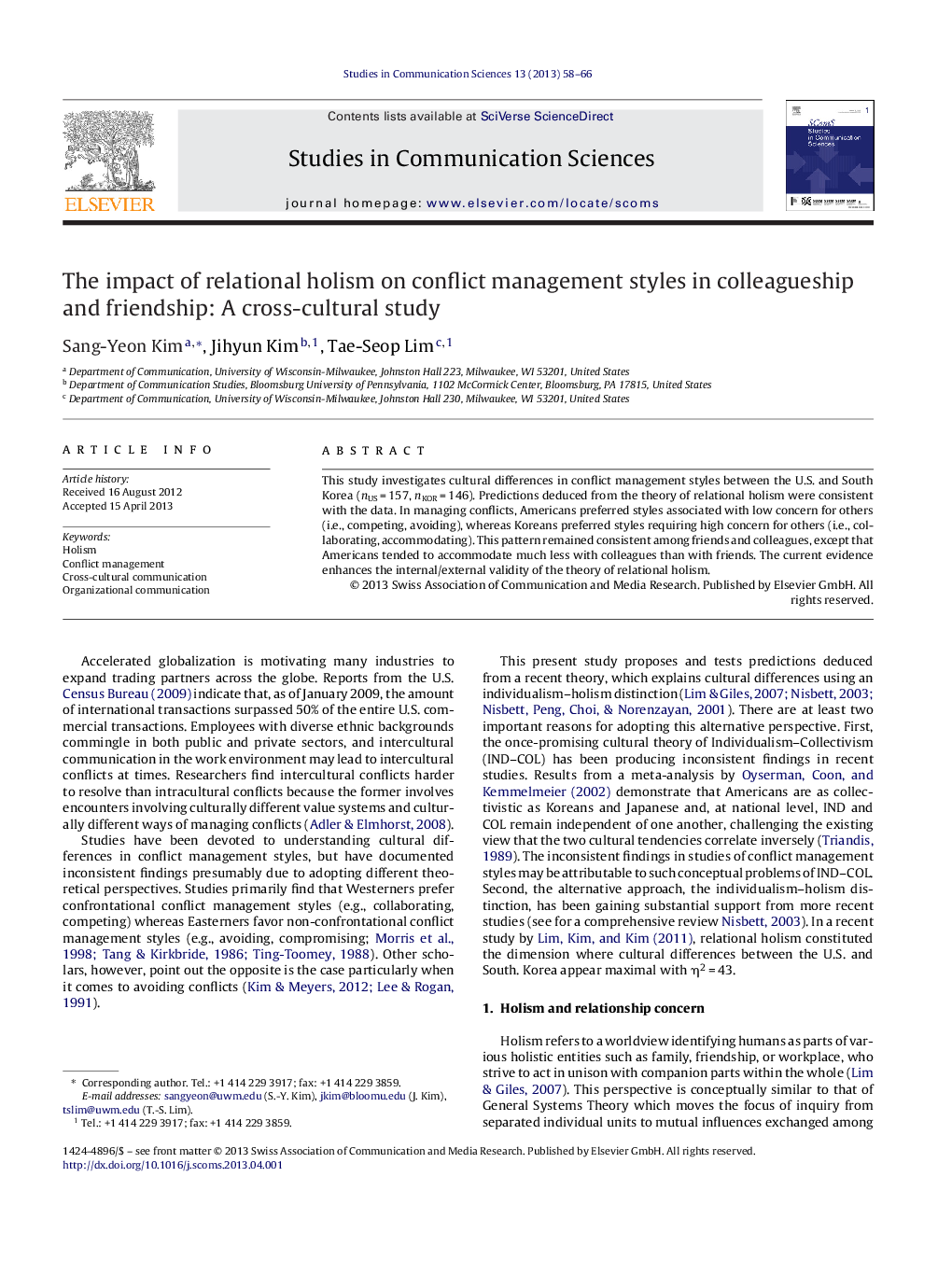| Article ID | Journal | Published Year | Pages | File Type |
|---|---|---|---|---|
| 10256722 | Studies in Communication Sciences | 2013 | 9 Pages |
Abstract
This study investigates cultural differences in conflict management styles between the U.S. and South Korea (nUSÂ =Â 157, nKORÂ =Â 146). Predictions deduced from the theory of relational holism were consistent with the data. In managing conflicts, Americans preferred styles associated with low concern for others (i.e., competing, avoiding), whereas Koreans preferred styles requiring high concern for others (i.e., collaborating, accommodating). This pattern remained consistent among friends and colleagues, except that Americans tended to accommodate much less with colleagues than with friends. The current evidence enhances the internal/external validity of the theory of relational holism.
Related Topics
Social Sciences and Humanities
Arts and Humanities
Language and Linguistics
Authors
Sang-Yeon Kim, Jihyun Kim, Tae-Seop Lim,
